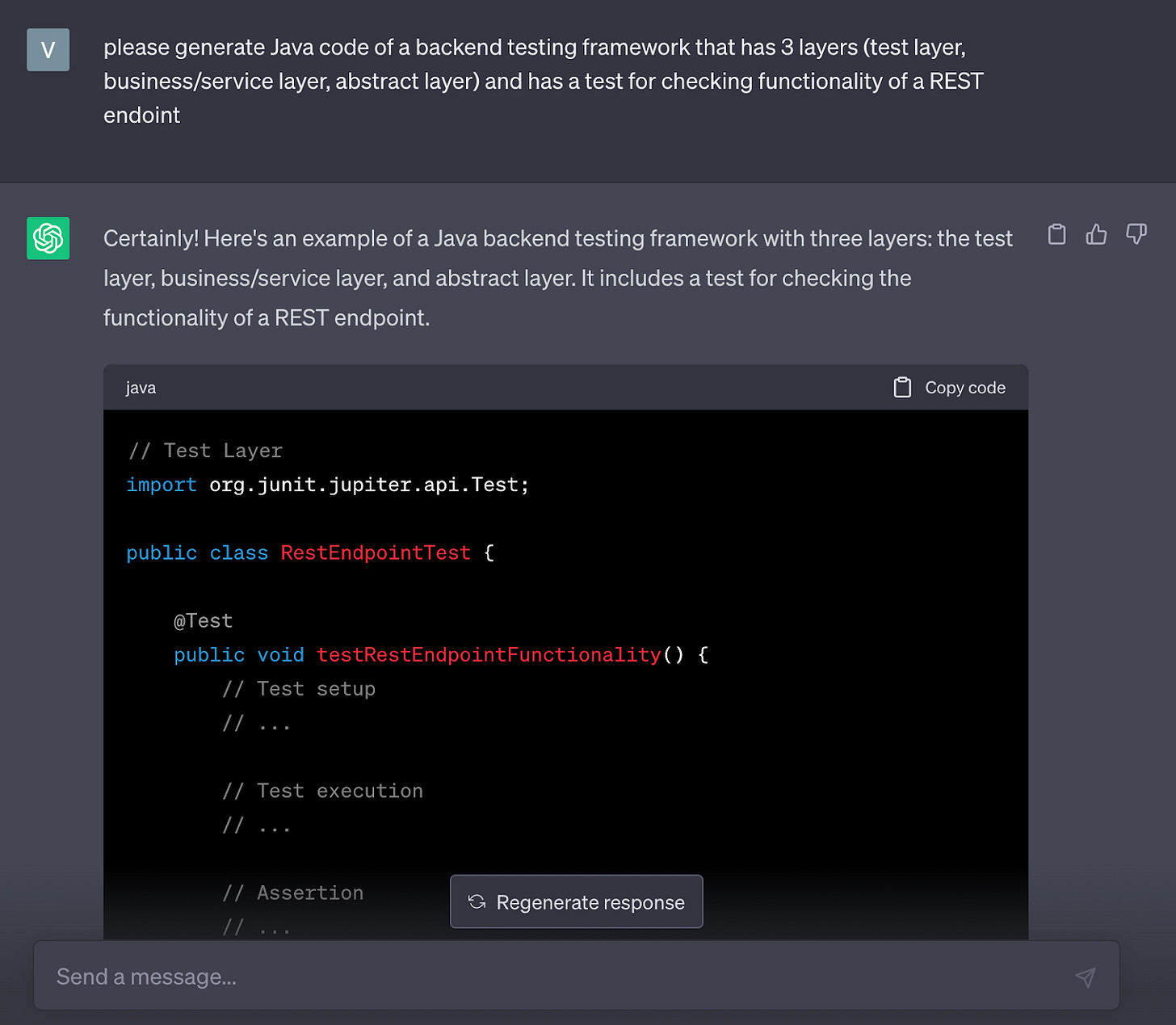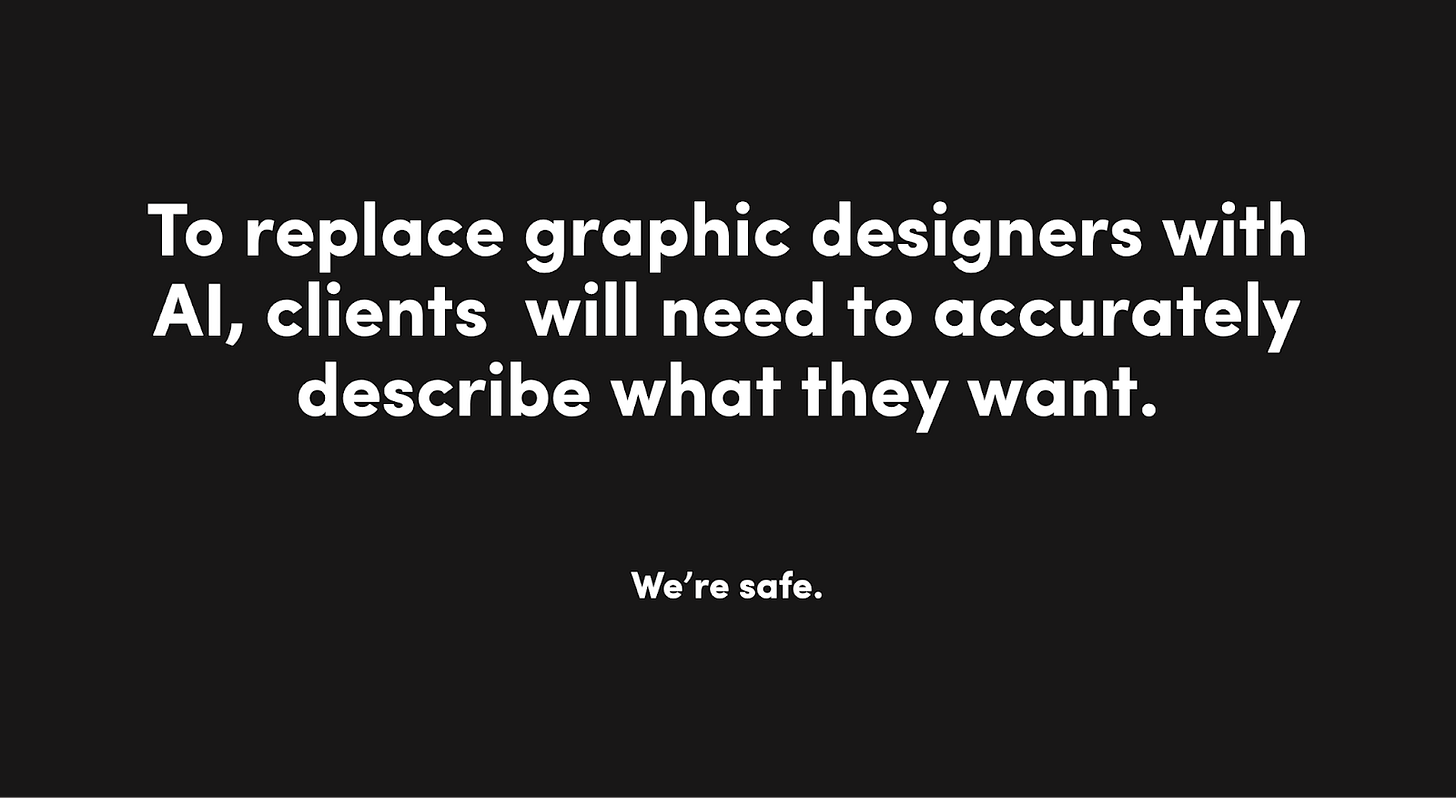Is AI going to replace me soon? Breathe, everything will be alright
Probably, there are no IT specialists left who haven’t heard about artificial intelligence (AI) yet. Indeed, the past year has witnessed a tremendous increase in the popularity of tools such as ChatGPT, Midjourney, DALL-E, Synthesia and others. There’s a lot of talk about AI in social media, conferences and news, and at times, people even become obsessed with it.
Along with all the excitement, I started noticing an increasing number of concerns being raised. Whether it’s within the experts community or among those who are not involved with AI on a daily basis, many people are asking questions like “How will AI be regulated?”, “How can we distinguish between artificial and real creations?” and so on.
But perhaps one of the most practical and pressing questions I’ve come across is “What will happen to my job? Will AI soon replace me?” Today, let’s discuss how the expansion of AI is going to impact us as quality assurance engineers and whether there’s cause for concern.
Why is it happening to us right now?
Many of us might be wondering, “What’s so special about this time that we suddenly have an abundance of all these ChatGPTs and other AI-powered platforms?” Well, let me tell you something - it’s been around for quite some time, it wasn’t just forced upon us.
Stay connected and get the latest updates by following us on Twitter!
Recently, I watched an insightful Web Summit Rio talk on AI topics from Cassie Kozyrkov, Chief Decision Scientist at Google. She highlighted that AI has been around for years, in Google products and enterprise platforms like Netflix, among others. We just simply didn’t realize we were interacting with AI, it wasn’t explicitly disclosed to us.
And if at their early stage, AI tools were primarily targeted at solving problems for scientific researchers mostly, nowadays they’re accessible to us and are capable enough to solve our individual challenges. That is why, I believe, we’re witnessing such a significant growth in popularity and hype around AI topics.
Can AI replace me as a quality assurance engineer?
The short answer is “no”, not anytime soon.
Remember the late 1980s and early 1990s when personal computers became popular and widely accessible to the public? I certainly do, and I also remember how sceptical my parents were of those hellish newfangled machines, thinking they would kick them out of their jobs right away. However, that never actually happened.
But once they learned how to perform certain tasks on PCs, their efficiency and performance increased dramatically. Of course, documents didn’t magically create themselves, and Photoshop couldn’t automatically heal bad pictures - manual human intervention was still required. However, the wide introduction of PCs significantly boosted work productivity.
I think it’s very similar to what’s been happening with AI nowadays. It is capable of performing tasks that were time-consuming for humans, but now can be done within minutes or even seconds. AI writes “books”, generates programming “code”, produces images from text descriptions, and creates audio and video content. But, in most cases, the output of AI still requires human supervision and validation.
In one of my blog posts, I engaged with ChatGPT as a junior QA and sought career advice. Its responses were excessively generic and sometimes misleading. In another example, I needed illustrations for an article and decided to utilize Midjourney to generate them. It took me 2 nights of reviewing and refining my very detailed descriptions until Midjourney finally produced something more or less acceptable.
Therefore, I don’t anticipate AI taking over software testing in the observable future. Well, it may be capable of handling some high-precision and time-consuming tasks, such as visual testing where human eyes can’t really notice differences. But even that will require human intervention to prepare and validate base images (I actually confirmed this last month during one of the talks at the Test Automation Days 2023 conference).
What can AI do for me as a QA?
I have come to the conclusion that we need to become proficient in using AI to our advantage. Instead of being scared that “Skynet is going to replace us”, we should learn how to use these tools to improve our productivity and save time for more creative and crucial tasks.
Software testing is a complex field, and it can be tough to remember everything. Honestly, I find it difficult too. This is where a handy AI toolkit helps me out.
Need to create a concise CV for applying for a new role? ChatGPT can generate a decent template in a matter of seconds. Struggling with generating possible input combinations for a login form? Again, ChatGPT can assist, and it is even capable of generating test cases for the feature. Looking for a testing strategy structure or a well-crafted email introduction? Why not ask your digital buddy, ChatGPT?
What if we go further and pretend we needed some help in test automation:
For the sake of brevity of the newsletter, I have omitted the code that ChatGPT generated, but it was quite decent and even runnable. Of course, in a real complex project with many dependencies, this code won’t really fit. However, it’s a good starting point for beginners.
These are just a few examples of tasks we can delegate to AI. I have personally “appointed” AI to generate images for my blog, proofread raw texts and give advice on how to start something I’ve never done before.
What is the impact AI tools have on the job market and the testing industry?
It would be unfair to say that there is no impact at all. With just a few prompts, artificial intelligence tools can produce quite realistic results, and that will certainly have an effect on some professions, such as copywriters, web designers and video content creators.
According to the Open AI paper, other professions that involve processing a relatively large amount of data will also be impacted (translators, auditors, survey researchers, customer support agents, legal assistants, and more). The automation capabilities of AI tools have the potential to streamline and augment these roles, potentially changing the nature of work in these fields.
The latter is quite questionable for the time being. Less than 2 weeks ago, the breaking news shook the world - Steven Schwartz, an attorney in law, used ChatGPT to prepare a brief with cited previous court cases. However, they appeared to be unknown to the judge and other lawyers. And after an investigation, they found out that ChatGPT made up those “bogus judicial decisions with bogus quotes and bogus internal citations”.
That’s why I don’t personally see quality assurance and software testing jobs at risk, at least not in the next couple of years. Any longer period of time is difficult to forecast as AI continues to develop and “learns” from various examples. The future of AI and its impact on our industry might be changing depending on multiple factors.
What we need to remember is that AI is a powerful tool that can assist and enhance human capabilities, but it is not yet capable of completely replacing human expertise and judgment.
To summarize and end on a light-hearted note, I would like to share a quote I came across on my LinkedIn feed:
Utilize the power of AI. It is not here to replace us in testing software but to enhance our capabilities and save time for more important things…





